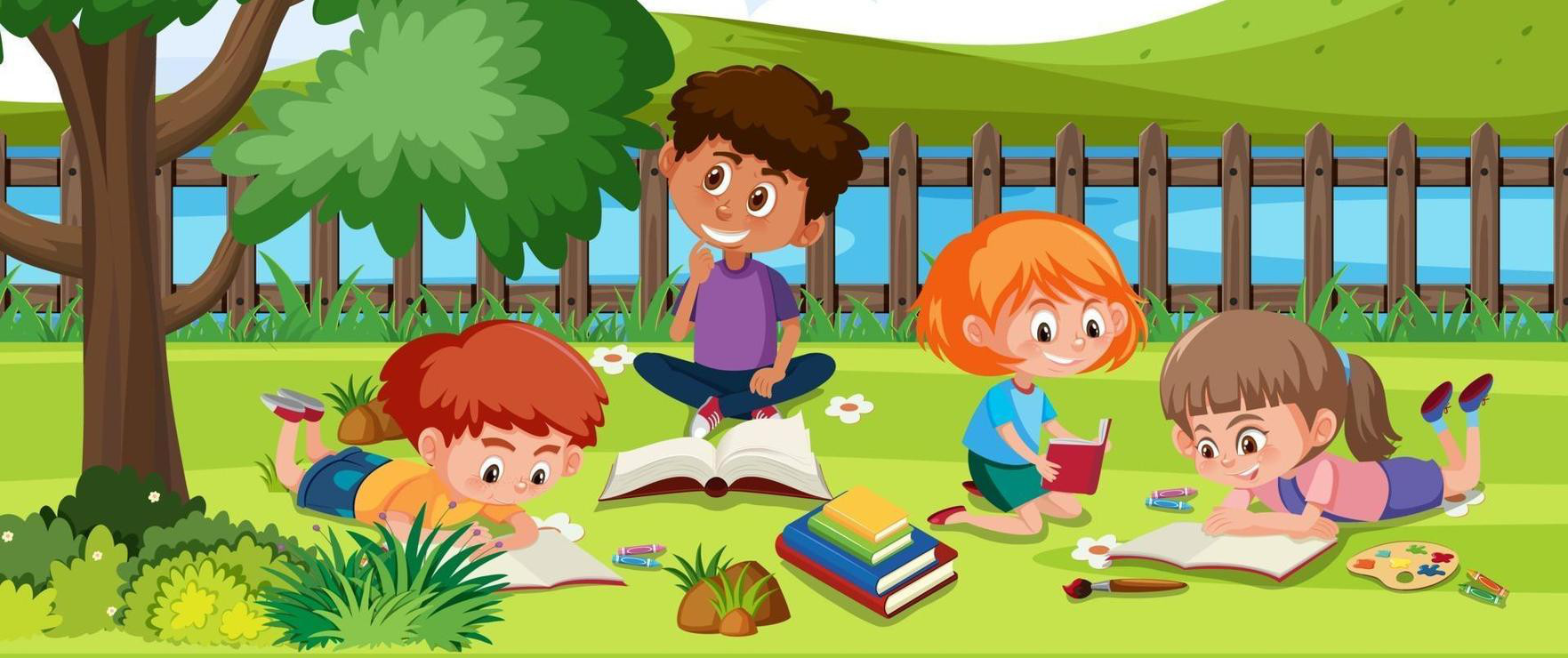20 Benefits of reading

- Many American children struggle with reading. According to the National Assessment of Educational Progress, 33% of American fourth graders read below the "basic" level. This means they do not have partial mastery of the knowledge and skills needed to be proficient readers at their grade level.
- There is a significant achievement gap in reading abilities among students. Some subgroups, such as black students, Hispanic students, and students in poverty, have even higher rates of reading failure than their peers. High-need students often face chronic difficulties in the classroom, and teachers must be prepared to meet these challenges.
- Learning to read is a complex process that involves multiple skills. Reading is not just about recognizing individual words, but also about understanding the meaning of the text as a whole. The process of learning to read is similar to building a car, with various components (such as phonemic awareness, phonics, fluency, vocabulary, and comprehension) that need to be developed and integrated.
- Teachers should focus on the end goal of developing strong readers and learners. The most effective teachers balance the various components of reading and foster a love of books, words, and stories in their students
- Struggling readers often have difficulty decoding and recognizing words. This is often due to a lack of phonemic awareness, or the understanding that words are made up of speech sounds (phonemes). When word recognition is not automatic, reading is not fluent, and comprehension suffers.
- Preschool knowledge and experiences play a significant role in a child's ability to learn to read in first grade. Factors such as the ability to recognize and name letters, general knowledge about print, and awareness of phonemes are all important predictors of reading achievement.
- Reading aloud with children is the single most important activity for building the knowledge and skills needed for success in reading. This includes developing phonemic awareness, phonics skills, vocabulary, and comprehension.
- Phonemic awareness, phonics, fluency, vocabulary, and comprehension are all important components of reading. Phonemic awareness is the understanding that words are made up of speech sounds (phonemes), phonics is the understanding that sounds are linked to certain letters and letter patterns, fluency is the ability to read smoothly and accurately, vocabulary is the knowledge of words and their meanings, and comprehension is the ability to understand and make sense of what is read.
- Reading comprehension requires not only decoding skills, but also background knowledge and the ability to make connections. In order to fully understand a text, readers must not only be able to decode the words, but also have the necessary background knowledge and the ability to make connections to their own experiences and prior knowledge.
- Reading is a vital skill that has numerous benefits, both personally and academically. Reading helps develop critical thinking skills, expands knowledge and understanding of the world, and enhances personal growth and enjoyment
- Reading is a fundamental skill that is necessary for success in school and in many other areas of life. Reading is a foundational skill that is necessary for academic success and is also important for everyday life. It allows individuals to access and comprehend a wide range of information and ideas, both in print and online.
- Reading is a complex process that involves multiple cognitive skills, including decoding, comprehension, and critical thinking. Decoding involves the ability to translate written words into sounds and meaning. Comprehension involves understanding and interpreting the meaning of the text. Critical thinking involves analyzing and evaluating the text and making connections to the reader's own experiences and knowledge.
- Reading aloud to children is a powerful way to support their language development and literacy skills. Reading aloud to children helps them develop listening skills, build vocabulary, and learn about language and reading. It also helps them develop a love of books and reading and can foster a lifelong love of learning.
- Reading comprehension skills can be improved through practice and the development of strategies such as asking questions, making connections, and summarizing. Reading comprehension skills can be developed and strengthened through regular practice and the use of effective strategies such as asking questions about the text, making connections to the reader's own experiences and knowledge, and summarizing the main points of the text.
- Reading a variety of texts, including fiction and nonfiction, helps develop a broad range of knowledge and vocabulary. Reading a diverse range of texts exposes the reader to new ideas, perspectives, and vocabulary, which can broaden their knowledge and understanding of the world.
- Reading can improve mental health and well-being by providing a sense of relaxation and escape from daily stressors. Reading can be a relaxing and enjoyable activity that helps reduce stress and improve overall mental health and well-being.
- Reading helps improve communication skills by increasing vocabulary and understanding of language. Reading exposes individuals to a wide range of words and language structures, which can improve their vocabulary and understanding of language. This can lead to improved communication skills, both in spoken and written language.
- Reading can foster empathy and understanding of others by providing insight into different perspectives and experiences. Reading allows individuals to step into the shoes of others and understand their experiences and perspectives. This can foster empathy and understanding of others and promote social and emotional development.
- Reading is an important part of lifelong learning and personal growth. Reading helps individuals learn and grow throughout their lives by exposing them to new ideas and information. It can also be an enjoyable and enriching hobby that promotes personal growth and development.
- Reading can be a fun and enjoyable activity that can be done alone or with others. Reading can be a fun and enjoyable activity that provides enjoyment and entertainment. It can be done alone or with others, making it a versatile activity that can fit into many different situations and settings.


